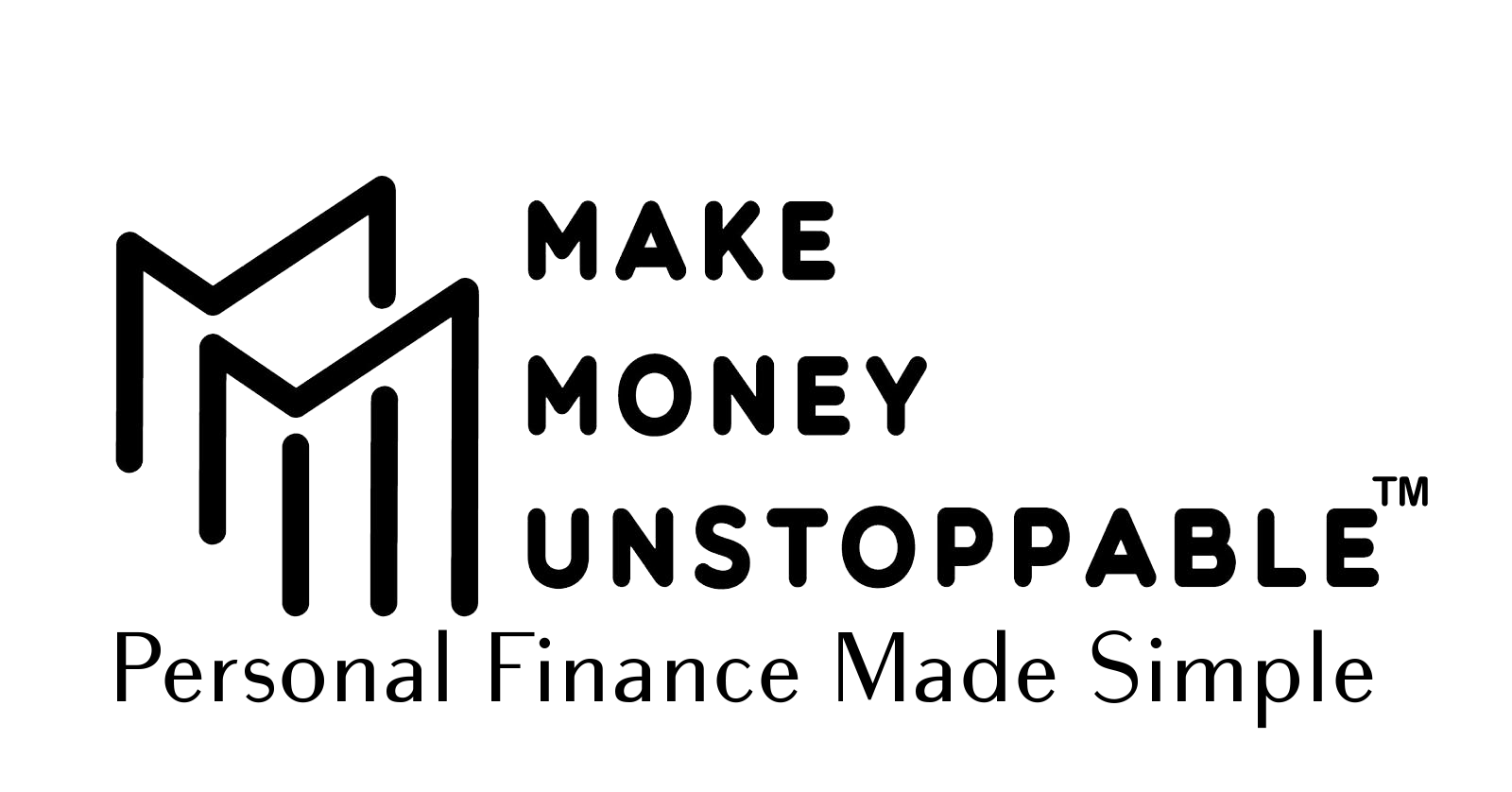
How Much Money Are Your Bad Habits Costing You? Hidden Expenses That Are Draining Your Wallet
When people think about financial stress, they often blame big expenses, such as rent, car payments, student loans, and mortgages. But the real culprits are often the small, seemingly insignificant daily habits that quietly drain your wallet. These seemingly harmless choices can add up to thousands of dollars per year, sabotaging your savings goals and keeping you stuck in a cycle of financial frustration. Add them up for a lifetime, and now that will grab our attention.
Last Updated: April 15, 2025

Disclaimer:I am not a licensed financial advisor, financial planner, tax professional, or attorney. The information provided in this blog is for general informational and educational purposes only and should not be construed as professional advice. Always consult with a qualified expert before making financial, legal, or tax-related decisions.
The purpose of this blog is to raise awareness, help track and break down common bad financial habits, calculate their real-world costs, and offer practical strategies to eliminate them. Of course, that part is entirely in your hands and your minds. Whether you’re trying to save money, reduce debt, or build wealth, understanding how your daily choices impact your wallet is the first step toward financial freedom.
1. Daily Coffee and Takeout Spending
The Habit:
Grabbing a coffee in the morning, ordering lunch and dinner every workday, and ending the day with a coffee and a pastry. It would be nice for everyone to eat out every day, but it comes at a heavy cost.
Let’s Dissect the Math:
- Coffee: $5 × 5 days/week × 52 weeks = $1,300/year
- Lunch: $15 × 5 days/week × 52 weeks = $3,900/year
- Dinner: $25 x 2 days/week x 52 weeks = $2,600/year
- Total Estimated Cost: $7,800/year
Let’s Analyze: Cost of each cup of coffee, how much does it cost to brew a cup? Is coffee good for you? Caffeine is a drug. Is coffee good for you? Why are you drinking coffee? Are you dinking it out of habit? Why cook when you can take out? Why are you not cooking? What are your reasons? How much are you spending on eating out and grabbing a cup of coffee? A coffee brewer at home can give you many cups of coffee that your heart desires at pennies on the dollar.
Potential Solution:
- Brewing coffee at home (~$0.50/cup). Invest in a coffee machine. I did.
- Meal prep lunches (~$3–$5/meal)
- Setting a weekly food budget
- Learning to cook
- Experimenting with different recipes
- Cooking together. That is fun and make a day out of it
- Cooking and storing for the whole week, and brown bagging it

2. Unused Subscriptions and Memberships
The Habit:
Paying for streaming services, fitness memberships, and apps that you rarely use. Many of the subscriptions may be duplicate services, underutilized, rarely used, or unused subscriptions. Are you locked into contracts for your gym membership, and do not use it? What other memberships do you have that are hidden, forgotten about, and many others you do not know you have but are paying for each month? When was the last time you made a list of what you have subscribed to? Now is the time to be accountable for where your money is going each month.
Let’s Dissect the Math:
- Average subscription cost: $25/month. This is a conservative amount.
- 7 subscriptions: $25 × 7 × 12 months = $2,100/year
- Total Estimated Cost: $2,100/year
Let’s Analyze: That is a big chunk of change to throw out every year knowingly. Do you have the list of all subscriptions? How much are you paying for each? Which do you use frequently? What has been forgotten, but you are paying for it? Which one of those is underutilized? Do any of these subscriptions bring any value to your life?
Potential Solution:
- Reviewing your bank and credit card statements monthly
- Canceling unused services that you do not use
- Using filters and check boxes to see what you want to keep and what you do not
- Using budgeting tools to track recurring charges
- Do you still use antiquated cable, dial-up, and landlines that are costing you?
Unlock your financial freedom.
Download this FREE eBook!.
How to make $100,000/month? Stop being average and think big.
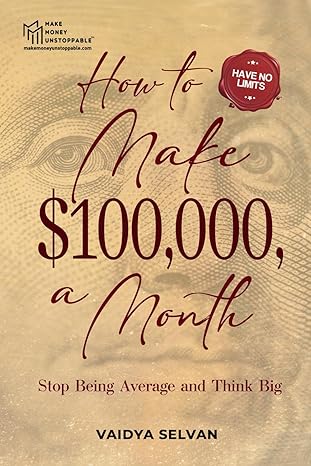
Stop Settling. Start Scaling.
Unlock the mindset, systems, and strategies top earners use to build unstoppable income.
Think Bigger. Earn Smarter.
This free eBook serves as your blueprint for scaling quickly, earning relentlessly, not settling for mediocrity, and living life on your terms.
Inside, you’ll discover:
- The Millionaire Mindset Blueprint
- Income streams that run on autopilot
- Entrepreneur hacks for focus and financial dominance
- One strategy to launch multiple income streams
- How to break free from “just enough”
- Tools to crush limiting beliefs and build your empire
Average doesn’t scale. Vision does. Download now and start your $100K/month transformation.
Yes, this eBook is free. Just drop in your email here to get instant access. ONE eBook per email.
The eBook is sent automatically and should arrive within minutes. Depending on your email provider, it may appear in your Spam or Promotions folder. While we don’t control its exact placement, you can be confident it has been dispatched and is waiting for you.
PLUS: Get Access to exclusive financial tips, learn everything about money and get early blog updates – delivered directly to your inbox .
3. Smoking and Vaping
The Habit:
Smoking and vaping daily. A hard habit to get rid of. But if it is costing you a lot of money each year, you may need to rethink and act on it to save money and your health.

Let’s Dissect the Math:
- Smoking: $10/pack × 365 days = $3,650/year
- Vaping and Supplies: $250/month + $60/ month (supplies)× 12 months = $3,720/year
- Total Estimated Cost: $7,370/year
Let’s Analyze: cost of smoking, vaping expenses, financial health, personal health, and financial habits. They may be altering your natural ways of living life. Why are you spending a big chunk of money each day to support your habit? Have you considered how much they are costing you each month? Have you factored them into your budget? Quitting the habit may be the right answer for you to save money and your health.
Potential Solution:
- Cessation programs
- Stopping cold turkey
- Redirecting funds to savings
- Tracking progress and making health improvements
- Creating distractions to steer away from these habits. An idle mind is a devil’s workshop.
- See how much you are spending and then make an effort to save those funds in a large and clear sealed jar with a slot on top. Use it to save the money you would have used for supporting your habits and see that money pile up.
4. Weekend Entertainment and Social Spending
The Habit:
Spending on dining out in fancy restaurants, bar tabs, rideshares, and exclusive events every weekend.

Let’s Dissect the Math:
- Fine dining: $150/weekend × 52 weekends = $2,600/year
- Broadway shows: 250 x 2 times a year = $500/year
- Bars: $150 a month x 12 months = $1,800/year
- Movies: $50 with popcorn and a drink x 4 times a year = $200 /year
- Rideshare: $450 /year
- Travel once a year on domestic and one international: Domestic $1000, International $3000 = $4,000/year
- Total Estimated Cost: $9,550/year
Let’s Analyze: Weekend spending without an entertainment budget, or not saving money on social events, will steer you away from financial discipline and financial freedom if you have no control over your experiences. Your lifestyle may outspend your income, and you may have nothing to show for it in the end. Going away every weekend, traveling domestically and internationally, a vacation you cannot afford, what brings in value, and what is important to you.
Potential Solution:
- Hosting gatherings at home
- Setting a monthly entertainment budget
- Using cash envelopes for social spending
- Looking out for free concerts during the Summer
- Free entertainment and activities in libraries
- Community fairs
Maybe eat out less often
5. Impulse Shopping and Emotional Spending
The Habit:
Impulse buying items on sale or shopping online and in shopping malls when you are lonely, bored, or stressed.

Let’s Dissect the Math:
- $550/month × 12 months = $6,600/year
- Total Estimated Cost: $6,600/year
Let’s Analyze: Impulse buying through emotional spending can feel good for the moment, and buying a tangible, shiny object may create sparks of excitement for the first day or the next, after which that sparkle will die down. Do you want to save your hard-earned money? Spend only on your true needs. Learn financial self-control; lay down budgeting strategies, and never shop on an empty stomach, without a list. It may entice you to spend more. Shopping with the wrong circle of spendthrifts, friends, and peer pressure may bring in the urge to spend more and keep up with the group.
Potential Solution:
- Using a 24-hour rule before making any major purchase
- Unsubscribing from promotional emails
- Cutting down screen time on social media
- Sticking to a shopping list
- Distracting yourself when your emotional level is way down
- Having a monthly budget and sticking to it
- Paying with cash. Leave your credit card at home. It may help limit spending on impulse
6. In-App Purchases and Mobile Spending
The Habit:
Spending on mobile games, app upgrades, and consuming too much digital content, falling for influencer-marketed products, and others. The ease and convenience that makes purchasing mobile-friendly may propel us to spend more without having any respect for money. We live in a materialist world and a market full of consumers looking for the next shiny object. And to make things worse, we are buying stuff on credit with money we do not have.

Let’s Dissect the Math:
- $100/week × 52 weeks = $5,200/year
- Total Estimated Cost: $5,200/year
Let’s Analyze: In-app purchases, mobile spending habits, digital budgeting, and apps may force you to spend. Develop personal finance awareness by knowing your numbers, income, expenses, and your budget in particular. You will need something in front of you to measure, such as using some form of metric. You cannot measure what you do not see.
Potential Solution:
- Setting app store limits
- Using free alternatives
- Monitoring digital spending monthly
- Gaming has become more popular. It consumes. Money, time, and effort. All of which are being wasted
- Never buy what you don’t need. If it doesn’t bring any value to you, stay away from the unnecessary stuff
- We have become addicted to our devices and are glued to the screens, only to waste our most precious resource- time. Cut down screen time and save yourself a lot of money and time.
7. Car-Related Convenience Costs
The Habit:
Using premium fuel, getting frequent car washes, using valet parking, and using toll roads can all add up over time. Some cars may need to use Premium gasoline, and manufacturers may recommend it. That is perfectly understandable. Always check with your manufacturer and the dealer where you purchased your car for details. Cars depreciate over time. Buy the best one you can afford that is reliable for daily use. Then maintain it and keep it for the long haul, meaning forever. A car is a car. It takes you from point A to B, and you are not going to live in it. Save the rest and invest it where it suits you.

Let’s Dissect the Math:
- Premium fuel: $0.50/gallon × 600 gallons/year = $300/year
- Car washes: $15 × 2/month × 12 = $360/year
- Valet/tolls: $20/month × 12 = $240/year
- Parking: $150 a month x 12 = $1,800/year
- Total Estimated Cost: $2,700/year
Let’s Analyze: car expenses can dig into your transportation budget. Know how you can save money on driving, factoring in fuel costs, insurance, parking, and tolls. Learn about personal finance tips. The fuel selection for your car, car washes, valet, and tolls, all of these add up very quickly. Incorporate them into your monthly budget.
Potential Solution:
- Checking with your car manufacturer on what fuel to use
- Washing your car at home
- Avoiding tolls and valet parking. Take the side roads and the scenic routes instead
- Too many car washes may be an excessive expense. Rain may help clean your car, too, once in a while
- Taking public transportation if feasible
- Asking yourself: Is having a car worth it, and does it support my need to own it
- Maybe using rideshare for short distances and occasional use
8. Poor Sleep Habits
The Habit:
Late-night screen time, inconsistent sleep patterns, and rhythms. Sleeping late may affect your health.
Let’s Dissect the Math:
- Extra caffeine/snacks: $8/day × 3 days/week × 52 = $1,248/year
- Impulse purchases due to fatigue, sleeping late, and boredom: ~$500/year
- Total Estimated Cost: ~$1,748/year
Let’s Analyze: Poor quality sleep and spending may be related. Learn about the financial impact of poor sleep and its effect on your finances. Develop healthy habits, a budget-friendly lifestyle. Here are the Nos: irregular sleep timing, going to bed late, sleeping late, and inconsistent time going to bed, tossing and turning, may all be detrimental to your overall health and well-being. Be aware of whether you may have sleep apnea or snoring. They may have physical and overall health implications.

Potential Solution:
- Establishing a consistent sleep schedule
- Limiting screen time before bed
- Tracking sleep quality and spending correlation
- Reading a book an hour before sleeping
- Not eating after 6.00 pm
- No caffeine or other stimulants past evening time
- No strenuous exercise close to bedtime
9. Lack of Financial Education
The Habit:
Avoiding personal finance education and money management skills.
Let’s Dissect the Math:
- Missed investment growth: $100/month not invested × 12 months × 7% return = $1,284/year
- High-interest debt due to poor decisions: ~$1,000/year
- Not investing in self-improvement courses and books: $5,000/year
- Opportunity cost (lost opportunities): $100,000/year
- Inefficiencies and errors made: 100,000/year
- Financial Ignorance and its potential consequences: 500,000/year
- Lack of business acumen and mistakes made: $100,000/year
- Total Estimated Cost: $807,248/year (Note: These figures are just hypothetical numbers and are used for illustration purposes only).
Let’s Analyze: financial literacy, personal finance education, money management skills, investing basics, and budgeting for beginners. As you can see, the above are hypothetical figures, we cannot visibly measure, but they clearly show the true cost of financial ignorance, the cost of inefficiencies, and the lost opportunities due to financial illiteracy. These are just hypothetical guesses used for illustration purposes only. Because no one talks about something that cannot be measured. People tend to measure only what they can see for themselves. These are intangibles. But I wanted to bring this point up and showcase it for you to form your own opinions on it.

Potential Solution:
- Reading finance blogs and books
- Educating yourself and knowing everything about money
- Then teaching others what you know
- Watching educational videos
- Taking free online courses
- Learning from mentors
- Learning from others who have been down your proposed path
- Being open-minded and being curious to learn
- Being a lifelong learner
10. Not Tracking Your Spending
The Habit:
Living without a budget and not having a financial tracking system. A bad combination. Not knowing where your money is going is not good. You should keep track of where each dollar is going. Give it a job and put it to work. Invest it.
Let’s Dissect the Math:
- Overspending: $100/week × 52 = $5,200/year
- Total Estimated Cost: $5,200/year

Let’s Analyze: track spending using budgeting tools, be financially aware, manage money wisely, respect money, and it will respect you. Know how to track your money. Know what you are spending on, make cuts to your spending, and learn the difference between true needs and wants.
Potential Solution:
- Using budgeting apps or spreadsheets
- Setting weekly financial check-ins
- Automating savings and bill payments
- Using the envelope method to allocate money for various expenses. I have another blog that describes the envelope method. Make sure to educate yourself on that method.
- Knowing how much you are spending per day, per week, per month, each weekend, and per year. By breaking them down, you will know where you are going wrong and will be able to correct them early on.
11. Credit Card Interest and Fees
The Habit:
Paying only the minimum balance or missing payments. Neither is good for your wallet. In the former, just by paying the minimum, it will take much longer to pay off your current balance. Also, a major part of your payment will go towards interest payments, and not to the principal.
Let’s Dissect the Math:
- $5,000 balance × 20% interest = $1,000/year, just in interest
- Late fees: $35 × 3 = $105/year. Note that Late fees may also affect your credit score.
- Total Estimated Cost: $1,105/year

Let’s Analyze: credit card interest, late fees, bank fees, hidden fees, minimum payments, reducing debt, and personal finance mistakes. The longer you defer payment, the more interest you will be paying. Plan to pay off your credit cards each month in full before the due date to prevent paying interest.
Potential Solution:
- Paying off the balance in full each month, before the due date
- Never paying just the minimum due; it may take much longer to pay it off
- Setting payment reminders
- You may also set up auto pay, so you do not forget the due date
- Sometimes, you may be able to negotiate lower interest rates
12. Overdraft Fees and Bank Charges
The Habit:
Overdrawing your account or missing payments.
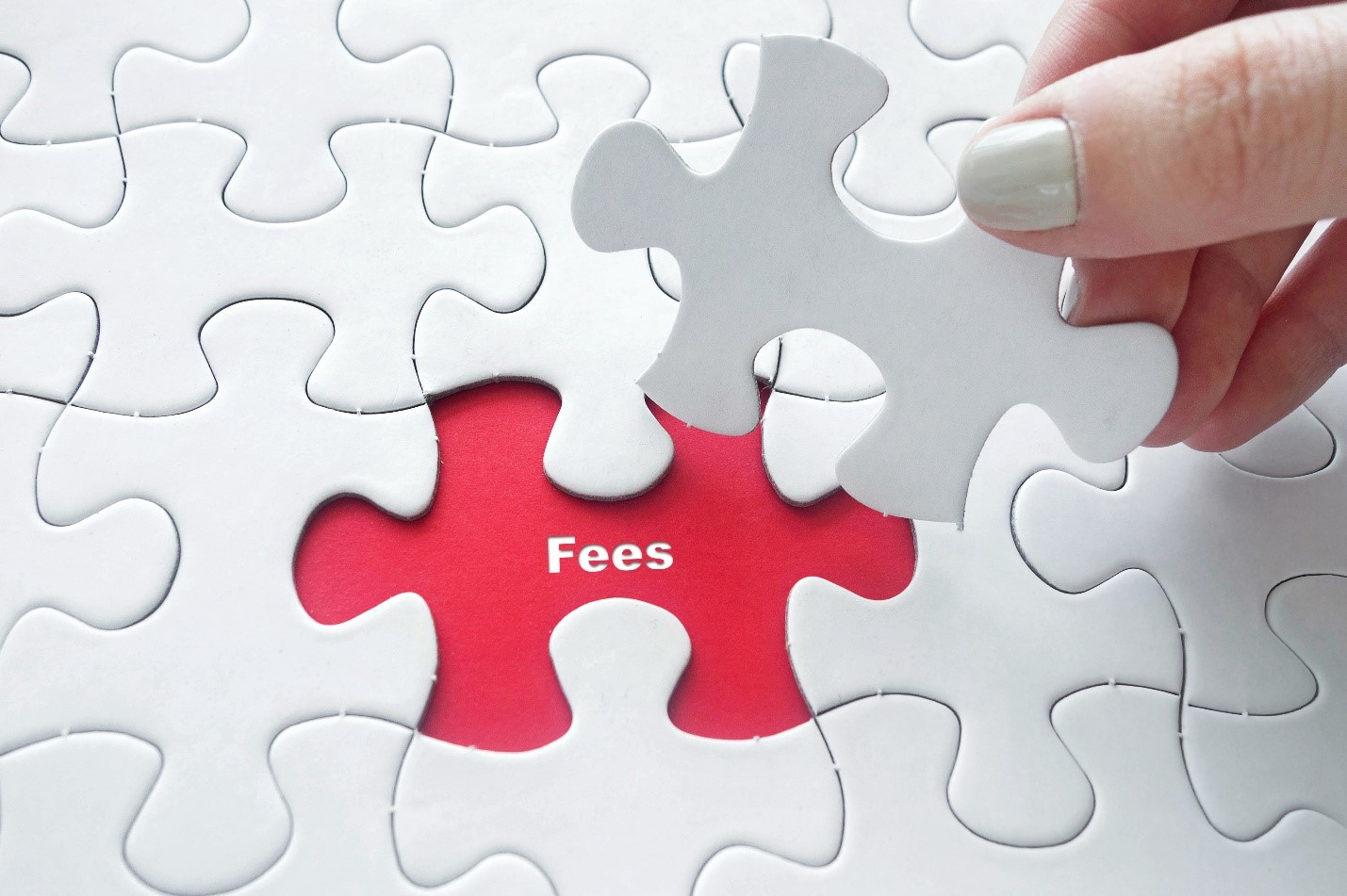
Let’s Dissect the Math:
- Overdraft fees: $35 × 12 = $420/year
- Other bank charges: ~$100/year
- Total Estimated Cost: $520/year
Let’s Analyze: bank fees, overdraft charges, avoid financial penalties, personal finance awareness, budgeting tips, financial literacy, and knowing how money works, and know the minimum balance requirement for each account to prevent monthly charges and other hidden fees.
Potential Solution:
- Monitoring account balances
- Setting low-balance alerts
- Using accounts that may have no overdraft fees or have any minimum deposit requirements
- Keeping track of your bank accounts daily
- Knowing your numbers
- Knowing your budget, income, and expenses really well
- Being prepared for the unexpected
- Having a rainy-day account
13. Bottled Water and Convenience Drinks
The Habit:
Buying bottled water or sugary drinks daily. Consumption of soda and other bottled drinks may have detrimental effects on your health. Since when was it ok to mix food and plastics to come in contact with each other? Now, factor in the heat during warehousing and storage. Since when did water become commoditized? Why are we buying water? Have we become prey to advertisements? Since when did drinking tap water look cool and become a status symbol? Are we heading in the wrong direction? We are consuming food in cans and bottles, but are not willing to cook and eat healthy, real food that is good for our bodies. Do you know what is inside those cans, bottles, and frozen dinner packages?

Let’s Dissect the Math:
- Bottled water: $5/day × 365 = $1,825/year
- Soda: $5/day x 365 = $1,825/year
- Energy drinks: $5/day x 365 = $1,825/year
- Total Estimated Cost: $5475.00
Let’s Analyze: bottled water cost, buying energy, and convenience drinks. You may be paying a premium for those items. Did you know convenience stores may be more expensive than you think? There is a markup on everything you touch these days. Markup may be over 20% in some cases and for some items. You may need to do your homework and learn more about it. Develop better personal finance habits, daily spending tips, and not consuming unhealthy drinks may save you a lot of money and may help protect your health through conscious and healthy consumption of food and drinks. Know what is in each bottle or drink. Do you know what is in that bottle? Do you understand those fancy ingredient names on the label?
Potential Solution:
- Using a reusable stainless-steel bottle
- Drinking tap or filtered water
- Limiting sugary drinks
- Learning about the contents of the bottled drinks you are consuming
- Knowing the logistics and supply chain
- Knowing the business and profit numbers behind each drink
- Know what the business stands for
- Asking yourself: Are they healthy for me to consume? Am I feeding my body with the right food and drink?
14. Overspending on Gifts and Holidays
The Habit:
Buying expensive gifts and going overboard in spending during the holidays.

Let’s Dissect the Math:
- Gifts for different occasions: $100 × 10 occasions = $1,000/year
- Holidays: $1,500/year on travel, decor, food
- Total Estimated Cost: $2,500/year
Let’s Analyze: holiday budget, gift spending, saving money on gifts, personal finance during the holidays, planning your holidays, planning your expenses, and avoiding overspending. In Japan, gifts are often wrapped in cloth instead of paper gift wraps. I find that very fascinating, conservative, thoughtful, economical, creative, and sustainable. And, they may also be customizable in terms of designs, texture, and the feel of the cloth, and can be gifted with some degree of creativity attached to it.
Potential Solution:
- Setting a gift budget and sticking with it
- Giving meaningful gifts that have meaning to that person
- Will they use it, or will it collect dust
- Is the gift given as a formality, or is it given from the heart?
- Shopping off-season
- Being creative and customizing gifts to be given with love and not because everyone else is bringing in a gift for the occasion
- A gift given from the heart is priceless when compared to something gifted that is expensive and measured in terms of dollars and cents
15. Last-Minute Travel and Booking

The Habit:
Booking flights, hotels, and events at the last minute. This will become a costly affair for you and your wallet. Usually, you will be paying a premium price for this. Plan well ahead for your trips. You might get a great deal. Travelling off-peak times may be the best. You may get the best deals and face fewer crowds and personalized service. Not to mention shorter lines and minimal wait times.
Let’s Dissect the Math:
- Premium pricing: $500 extra × 5 trips = $2,500/year
- Missed deals: ~$500/year
- Total Estimated Cost: $3,000/year
Let’s Analyze: travel budgeting, do you have a budget for your travel? Do you book last-minute? Do you know your booking costs?, Know how to save money on travel, learn travel tips, and plan your vacations way ahead of time, and beat the rush. Vacation planning should not be a chore but a well-planned task that is executed well. Never procrastinate. It may cost you. Traveling during off-peak times may help save you more, with fewer crowds and shorter lines.
Potential Solution:
- Planning trips in advance
- Using price alerts
- Traveling during off-peak seasons
- Looking for deals
- Being kind, and you may be surprised by special deals
- Sometimes you may be able to negotiate
- Perks and special offers
- Empty seats may be available
16. Paying for Laundry Services and Dry Cleaning
The Habit:

Using laundry pickup services and dry cleaning for everyday clothing. If you have a washer in a dryer at home, why waste the money, the effort, and the time to get it done professionally? If you have the time, it may be worth it to do it at home.
Let’s Dissect the Math:
- Laundry service: $25/week × 52 weeks = $1,300/year
- Dry cleaning: $10/item × 2 items/week × 52 weeks = $1,040/year
- Total Estimated Cost: $2,340/year
Let’s Analyze: laundry service cost, and dry-cleaning expenses, do you really need them? Why not do it yourself in your spare time and pocket the change? How do you plan to save money on laundry? Do they have loyalty programs if you are having your laundry serviced every week? Do you shop around for prices? Are you getting top-notch service?
Potential Solution:
- Washing clothes at home
- Using wrinkle-free fabrics
- Air drying to reduce wear and tear
- Maintaining clothes for durability
- Adhering to the fabric handling and maintenance instructions
- Drying under the Sun may be suitable in some areas
17. Overspending on Beauty and Grooming
The Habit:
Frequent salon visits, spa treatments, and high-end grooming products may get expensive.

Let’s Dissect the Math:
- Haircuts/styling: $60 × 6 visits/year = $360/year
- Spa treatments: $100 × 4/year = $400/year
- Premium grooming products: $50/month × 12 = $600/year
- Total Estimated Cost: $1,360/year
Let’s Analyze: Do you have a beauty budget, money budgeted for grooming expenses, and money set aside for self-care and personal wellness? Beauty doesn’t have to cost you. Be creative and get creative in grooming and in using natural beauty products. You may get a chance to get away from the chemicals and save money in the process. And beauty is in the eyes of the beholder. All of us are beautiful inside and outside, designed by nature and self- approved through introspection.
Potential Solution:
- Spacing out salon visits
- Using DIY grooming kits
- Choosing affordable alternatives
- Being creative with your hairstyle
- Natural alternatives may be safer
18. Overspending on Kids’ Activities and Toys
The Habit:
Buying toys, gadgets, and paying for multiple extracurriculars without budgeting.

Let’s Dissect the Math:
- Toys/gadgets: $50/month × 12 = $600/year
- Activities: $100/month × 12 = $1,200/year
- Total Estimated Cost: $1,800/year
Let’s Analyze: kids’ expenses can override a budget if you have it is not earmarked for the same. Have you allocated money in your family budget? Read about saving money on parenting, personal finance for families, and about children’s activities costs, including summer camps and toys. Expensive toys, use and throw away toys, disposable toys, and toys collecting dust may sooner or later end up in landfills somewhere. Invest in toys that are safe, evergreen, and can be handed down or donated to the needy.
Potential Solution:
- Rotating toys and books
- Choosing community-based programs
- Setting a monthly kid-related budget
- Reducing screentime for kids
- Having them go outdoors for sunshine, fresh air, and interact with other kids their age
- Keeping them engaged
- Providing education experiences
- Teaching them about money early on
19. Buying Brand-Name Household Products
The Habit:
Choosing premium brands for cleaning supplies, paper goods, and toiletries. A detergent is a detergent. That’s what it is meant to do.

Let’s Dissect the Math:
- Brand-name markup: ~$20/month × 12 = $240/year
- Bulk buying savings missed: ~$15/month × 12 = $180/year
- Total Estimated Cost: $420/year
Let’s Analyze: Having a household budget is not enough; you will need to know the difference between brand-name vs generic, how to save money on cleaning supplies, know personal finance tips, and how to save on groceries. Can a generic product do the job? What’s the difference between buying a brand-name and a generic brand of the same product category? Why the price difference, if and when they are the same product with a different shirt on each of them?
Potential Solution:
- Buying generic or store brands. Maybe cheaper.
- Shopping in bulk when appropriate to your needs
- Using digital coupons and apps
- Buying on sale
- Know the available alternatives
20. Skipping Preventive Health Care
The Habit:

Avoiding annual checkups, dental cleanings, and vision exams may be costing you in terms of poor health, hidden, or lurking problems. Prevention is always better than a cure. You may be able to save in the short run, but it might get expensive for your wallet and your body in the long run. Focus on prevention. The preventive approach is usually much cheaper and much less painful.
Let’s Dissect the Math:
- Emergency dental visit: ~$375
- Periodic checkup, X-rays, and cleaning: $250
- Untreated medical issues: ~$3,500/year in meds or procedures
- Total Estimated Cost: $4,125/year
Let’s Analyze: Do you put off preventive health care visits? When was the last time you visited your dentist? Most people go to their dentist if and when they are forced to with oral infections or pain. Preventive dentistry may have taken the back seat these days, as has preventive medicine. Is your doctor trained to talk about diet and food intake, or are they trained just to write prescriptions? What is your monthly healthcare budget? Do you have one? I am sure your car has one. Cars have spare parts, but your body does not. Invest in your oral and systemic health. You only get one shot at it.
Potential Solution:
- Scheduling periodic checkups
- Using insurance benefits
- Practicing preventive care at home
- Making preventative visits to your dentist and medical doctor
- Feeding your body right and hydrated
- Catching things before they grow big
21. Ignoring Insurance Reviews and Policy Updates
The Habit:
Sticking with outdated insurance policies without reviewing coverage, not knowing what is covered, and not shopping for better rates. Have you read the fine print? Do you know what you are paying for? Do you have the breakdown of your benefits for all your policies? Do you know what you are getting before diving in? Do you have it in writing? Have you read their policy updates, if any?
Let’s Dissect the Math:
- Overpaying on premiums: $100/month × 12 = $1200/year
- Missed discounts: ~$200/year (this may or may not apply to you)
- Total Estimated Cost: $ 1,400/year
Let’s Analyze: insurance review, policy savings, personal finance insurance tips, reducing insurance costs, Insurance and planning, knowing your coverage, breakdown of benefits. You will need to know all of these and more before you know what your benefits are and know exactly what you are paying for. Get to know your policy, ask questions, and know everything before you sign on the dotted line.

Potential Solution:
- Reviewing your policies annually
- Comparing quotes
- Knowing your benefits
- What is covered and what is not?
- Bundling policies may help to earn potential discounts
- Ask questions and know your coverage
22. Paying Full Price Without Comparing
The Habit:
Buying items without checking for deals, price comparisons online and offline, or using digital coupons for online specials.
Let’s Dissect the Math:
- Missed savings: $100/month × 12 = $1200/year
Let’s Analyze: Price comparison seems to be minimal, even though we have information overload online. By keeping an open eye, we may be able to save a lot and avoid paying full price. Learn to acquire smart shopping habits, personal finance hacks, price-comparison, shopping for value, shopping around, and being an educated consumer, by knowing your market. There is no shame in asking around for the price you are willing to pay. You will always find someone who may offer a much lower price than your neighborhood grocer or vendor.

Potential Solution:
Frequent visits to casinos, online betting platforms, and making weekly lottery purchases. All of them may be designed to make the poor even poorer.
Let’s Dissect the Math:
- Casino visits: $400/month × 12 = $4,800/year
- Online betting: $100/week × 52 = $5,200/year
- Lottery tickets: $25/week × 52 = $1,300/year
Total Estimated Cost: $11,300/year
23. Overpacking and Baggage Fees
The Habit:
Paying for extra luggage or overweight baggage during travel. Not weighing the bags at home and packing according to the airline’s weight limitations and restrictions may cost you when you arrive at the airport.
Let’s Dissect the Math:
- $35/bag × 4 trips/year = $140/year
- Overweight fees: $50 × 2 = $100/year
- Total Estimated Cost: $240/year

Let’s Analyze: Baggage fees, travel budgeting, saving money on flights, personal finance travel tips, packing smart, overweight bags, oversized bags, and exceeding the weight limit. All of these need to be heeded and factored into your travel plans. Have a budget set for your travels, including meals, boarding, and lodging. Don’t forget to add the souvenir and tipping costs. During my travels, I have always invested in a magnet for the fridge. It serves the purpose and just by looking at it, takes me back in time and brings those experiences back by replaying them.
Potential Solution:
- Packing light and smart
- Using carry-on only
- Weighing bags before leaving home
- Packing for convenience
- Packing only what you need
24. Paying for Tech Support or Repairs You Could DIY
The Habit:
When you call tech support or repair services for minor issues. This can get expensive. Before you do, see if you can learn more about the problem and learn something from it. It serves two purposes. First, you are learning something new, and secondly, you may be in a position to ask the technician intelligent and appropriate problem-related questions.
Let’s Dissect the Math:
- $100/call × 3/year = $300/year
- Total Estimated Cost: $300/year

Let’s Analyze: Tech support cost, DIY repairs, saving money on electronics, personal finance and technology, home tech budgeting, learning something new, and asking intelligent questions. Keep on learning.
Potential Solution:
- Learning the basics of troubleshooting
- Using online tutorials
- Joining tech forums and asking for help. Sometimes people may be willing to give you an idea or tips.
- Learning from videos, blogs, and books
25. Not Negotiating Bills and Rates
The Habit:
Accepting quoted prices at face value for services like internet, phone, or rent without any potential negotiation. In the world of business, everything is potentially negotiable in a buy-sell transaction.
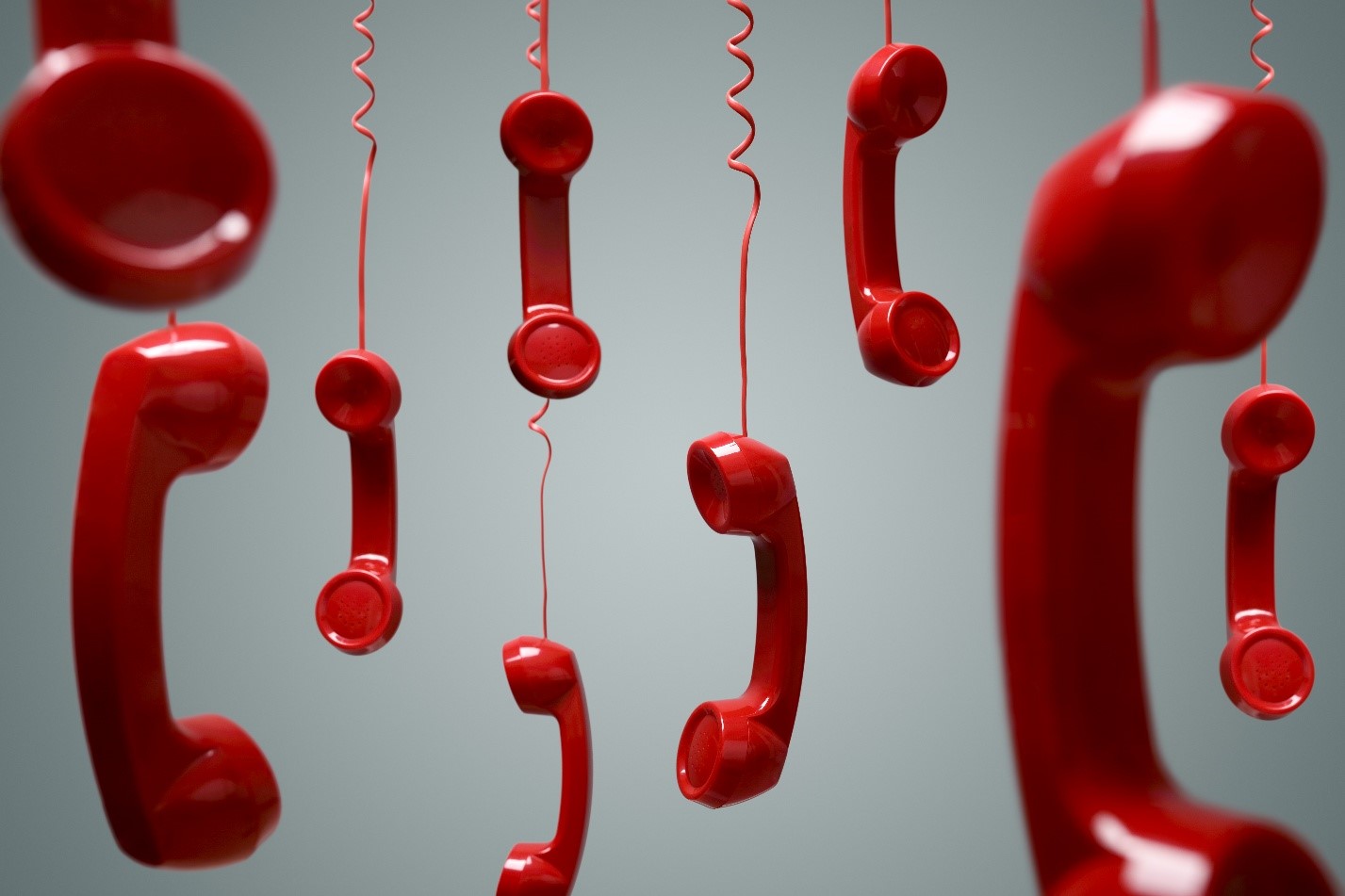
Let’s Dissect the Math:
- Potential savings: $100/month × 12 = $1,200/year
Let’s Analyze: Negotiating bills, lower monthly payments, personal finance, negotiation, saving money on utilities, and financial empowerment. Every dollar earned may help you invest it. It’s your hard-earned money. So, why give it away at the asking price? Everything in life is negotiable. Feel free to walk away and seek what you want elsewhere. You may always find a lower price or the price you want to pay somewhere. Someone will offer you something lower than what the other guy had offered you.
Potential Solution:
- Calling providers annually with a bill in hand
- Asking for loyalty discounts
- Comparing competitors’ rates and using them as a reference
- Asking for a student discount or a senior discount
- If you don’t ask, you may never get. The worst thing someone can say is no. It may be worth a try.
26. Overspending on Pet Products and Services
The Habit:
Buying premium pet food, toys, accessories, and booking grooming or boarding services without budgeting for them. Pets do not come cheaply.

Let’s Dissect the Math:
Let’s break it down for a typical pet owner:
- Premium pet food: $120/month × 12 = $1,440/year
- Toys and accessories: $25/month × 12 = $300/year
- Grooming services: $70/session × 6/year = $420/year
- Boarding or pet sitting: $75/night × 20 nights/year = $1500/year
- Vet visits for preventable issues: ~$1500/year
Total Estimated Cost: $5,160/year
Why It Hurts:
Pet expenses may often feel justified because they’re tied to loving and caring for your most trusted companion. But without a plan, they can become a major budget leak, especially when driven by impulse buys or luxury services.
Let’s Analyze:
Pet care expenses add up. So, how do you save money on pets? Preventive visits are always better. Budget for pet care, too, in your monthly budget. You may consider DIY, bathing, grooming, and nail clipping for your pet, and walking your dog.
Potential Solution:
- Food: Choosing vet-approved, cost-effective brands, maybe even generics
- Toys: Rotating existing toys and DIY some at home. Get creative.
- Grooming: Learning the basic grooming techniques or spacing out professional grooming visits
- Boarding: Asking friends or using trusted local sitters who may offer lower rates
- Vet care: Scheduling regular checkups and preventive care to avoid costly emergencies.
27. Overspending on Child Care and Related Services
The Habit:
Paying for child care without comparing providers, relying on last-minute babysitters, or not utilizing subsidized programs and tax benefits.
Let’s Dissect the Math:
Let’s break down typical child care costs for one child:
- Daycare center: $250/week × 50 weeks = $12,500/year
- Occasional babysitting: $15/hour × 4 hours/month × 12 = $720/year
- Late pickup fees: $10 × 2 times/month × 12 = $240/year
- Potentially missed child care credits: $2,000/year in lost savings. May or may not apply to you.
Total Estimated Cost: $15,460/year
Why It Hurts:
Child care is essential, but many families may be overspending due to a lack of planning, not making emergency arrangements, and being unaware of financial tools designed to ease the burden.

Let’s Analyze:
Child care costs are usually at the high spectrum. Find ways to save money on daycare. Plan ahead. Learn by reading books, blogs, and podcasts on the subject. Learn from other parents, too, who have been there and done that. Look around.
Potential Solution:
- Compare providers: Looking for licensed and affordable options with flexible schedules.
- Using tax benefits: Claiming on your tax returns. Check with a tax professional or experts in the field
- Planning ahead: Scheduling care in advance to avoid add-on fees.
- Exploring alternatives: Considering family help, or making part-time arrangements.
28. Excessive Alcohol Consumption
The Habit:
Regularly drinking in bars, restaurants, or purchasing alcohol for home use without budgeting for these expenses. Drinking out will always be expensive, each drink with its own markup and profit margins. Do not forget the tip.
Let’s Dissect the Math:
- Bar drinks: $10/drink × 3 drinks/week × 52 weeks = $1,560/year
- Restaurant markup: $12/glass of wine × 2 glasses/week × 52 = $1,248/year
- Alcohol purchase for home use: $40/month × 12 = $480/year

Why It Hurts:
Alcohol spending may often feel social or recreational, but the cost quickly adds up, especially when dining out or consuming alcohol on the weekends in clubs and bars.
Let’s Analyze:
Spending on alcohol is expensive, especially when it becomes a habit. You may need to change your lifestyle habits and budget for social events. Know the financial impact of alcohol consumption. Know how alcohol may affect your physiology and overall health. Excessive alcohol consumption has been shown to ruin the lives of many and their families.
Potential Solution:
- Setting a monthly alcohol budget
- Stopping consumption altogether may save you a lot of money and headaches
- Limiting drinking to special occasions
- Hosting gatherings at home may be much cheaper than at bars and restaurants
Just like in life, everything in moderation is good
29. Recreational Drug Use
The Habit:
Frequent visits to casinos, online betting platforms, and making weekly lottery purchases. All of them may be designed to make the poor even poorer.
Let’s Dissect the Math:
- Casino visits: $400/month × 12 = $4,800/year
- Online betting: $100/week × 52 = $5,200/year
- Lottery tickets: $25/week × 52 = $1,300/year
Total Estimated Cost: $11,300/year

Let’s Dissect the Math:
- Recreational use: $50/week × 52 weeks = $2,600/year
- Associated costs: missed work, fines, legal fees, health issues = $120,000
Total Estimated Cost: $122,600+/year
Why It Hurts:
Beyond the financial cost, drug use may lead to legal trouble, health issues, and long-term income loss. It’s one of the most dangerous financial habits that can be detrimental to everyone involved, including family.
Let’s Analyze: Drug spending may be a total waste of money and resources. Know the financial impact of substance use. Learn about personal finance and addiction. Do you know how much one can save just by quitting drugs? May need to seek help and budget for recovery.
Potential Solution:
- Seeking professional help or support groups
- Redirecting spending to health and wellness
- Tracking progress and celebrating milestones
- Knowing what is good and what is bad
- Doing things that are moral, ethical, integral, and honest to yourself
- Get out of the habit: Do it for you and your family and save money in the process
30. Gambling and Betting
The Habit:
Frequent visits to casinos, online betting platforms, and making weekly lottery purchases. All of them may be designed to make the poor even poorer.
Let’s Dissect the Math:
- Casino visits: $400/month × 12 = $4,800/year
- Online betting: $100/week × 52 = $5,200/year
- Lottery tickets: $25/week × 52 = $1,300/year
Total Estimated Cost: $11,300/year

Why It Hurts:
Gambling may be designed to be addictive and often may lead to chasing losses, accumulating debt, and facing emotional distress.
Let’s Analyze: Factor in gambling expenses, the financial impact of betting. Avoidance is the best. Shut off ads that promote gambling and betting. Turn off notifications for the same. It may be addictive, and you may face health issues and medical bills. Ask yourself: Is it worth it? How much time, effort, and money are you losing to gambling?
Potential Solution:
- Blocking access to gambling platforms
- Seeking counseling or support groups
- Replace gambling with low-cost hobbies or focus on financial goals
- Find ways to distract yourself
- Are you paying to support that habit? So, where is that money coming from? Can that money be channeled to making more money honestly, morally, ethically, and legally?
This is just a partial list of habits that may be quietly draining your finances. Feel free to add more if they apply to you—doing so can help you stay mindful of your spending and better manage your money. These habits often reflect life’s excesses, the kind of 'extra baggage' many of us carry without realizing its weight.
Combined Impact: Alcohol, Drugs, and Gambling
Category | Estimated Annual Cost |
· Alcohol | · $3,288 |
· Drugs | · $122,600 |
· Gambling | · $11,300 |
Total Estimated Cost: $137,188/year
“These habits can do more than drain your finances. They may also affect your mental and physical health, strain your relationships, and undermine your long-term financial and emotional stability. Confronting them may be one of the most powerful steps you can take toward true financial freedom.
Action Plan: Break the Cycle
- Audit Your Spending: Track every expense for 30 days.
- Identify Triggers: Emotional, social, or convenience-based?
- Set Financial Goals: Replace bad habits with purpose-driven goals.
- Automate Savings: Pay yourself first.
- Celebrate Progress: Reward milestones with non-financial treats.
Final Summary: Total Annual Cost of Bad Choices, Habits, and Money Management
| Habit Category | Estimated Annual Cost |
| 1. Coffee & Takeout | $7,800 |
| 2. Unused Subscriptions | $2,100 |
| 3. Smoking/Vaping | $7,370 |
| 4. Social Spending | $9,550 |
| 5. Impulse Shopping | $6,600 |
| 6. In-App Purchases | $5,200 |
| 7. Car Convenience | $2,700 |
| 8. Poor Sleep Habits | $1,748 |
| 9. Lack of Financial Education | $807,248 à Financial illiteracy |
| 10. Not Tracking Spending | $5,200 |
| 11. Credit Card Interest & Fees | $1,105 |
| 12. Overdraft & Bank Charges | $ 520 |
| 13. Bottled Water & Energy Drinks | $5,475 |
| 14. Gift & Holiday Overspending | $2,500 |
| 15. Last-Minute Travel | $3,000 |
| 16. Laundry & Dry Cleaning | $2,340 |
| 17. Beauty & Grooming | $1,360 |
| 18. Kids’ Activities & Toys | $1,800 |
| 19. Brand-Name Household Products | $420 |
| 20. Skipping Preventive Health Care | $4,125 |
| 21. Ignoring Insurance Reviews | $1,400 |
| 22. Paying Full Price | $1,200 |
| 23. Baggage Fees | $240 |
| 24. Paying for Tech Support & No DIY | $300 |
| 25. Not Negotiating Bills | $1,200 |
- Overspending on Petcare $5,160
- Overspending on childcare $15,460
- Excessive alcohol consumption $3,288
- Recreational drug use $122,600
- Gambling and betting $11,300
_____________________________________________________________________________
Estimated GRAND TOTAL: $ 1,040,309
_____________________________________________________________________________
Disclaimer: A lack of financial education and financial illiteracy can significantly impact your financial well-being throughout your life. That’s why it’s in your best interest to become informed and understand how money works. The figures mentioned above are intended to provide a general idea of potential costs associated with certain habits. They are not definitive and can vary widely from person to person, depending on individual spending patterns and lifestyle choices. This may or may not apply to you. The information is meant to create awareness and is just an overview. This content is provided for educational, informational, and entertainment purposes only.
Conclusion: Your Habits May Help Transform Your Financial Future
The truth is, financial leaks don’t always come from big-ticket items; they often stem from the small, repeated choices we make every day. Whether it’s a $5 coffee, unused subscriptions, or impulse buys triggered by boredom, these habits can quietly siphon thousands from your wallet over the years.
But here’s the good news: once you become aware of these patterns, you may gain the power to change them. Financial freedom isn’t about deprivation; it’s about intentionality. It’s what you want to do with your money. By auditing your habits, setting clear goals, and making smarter choices, you can redirect your money toward what truly matters most: building wealth, reducing stress, and creating a life of purpose and abundance.
Take a moment to reflect on the bad habits that may be quietly draining your finances. What habits are costing you, and what are you gaining from their use? The sooner you start making conscious financial decisions, the sooner you’ll see your money working for you and not against you.
Your wallet isn’t just a vault for your money—it’s a reflection of your values. It may be time to revisit those values and ensure they align with the future you want to create. In life, there’s a right path and a wrong path. The question is: which one will you choose?
From Experience to insight : Transformational reads for the Strategic mind
Foundational readings for big shifts:
Author: Vaidya Selvan
Welcome to Make Money Unstoppable Personal Finance Made Simple, a blog born out of necessity, a space created from real-life experiences, hard-earned lessons, and a deep-seated desire to share what I wish someone had taught me or had known sooner.

Newsletter Invite
Want more real-world information on Money? Join my newsletter for practical tips, updates on my books, and strategies to help you build financial freedom on your terms.
Yes, the eBook is also free. Just drop in your email here to get instant access. ONE eBook per email.
The eBook is sent automatically and should arrive within minutes. Depending on your email provider, it may appear in your Spam or Promotions folder. While we don’t control its exact placement, you can be confident it has been dispatched and is waiting for you.
#FinancialFreedom #Newsletter #MoneyTips
